this week your invitation to nourishment
A Zen perspective on Vision
A personal experience on Vision during Menopause
Warning Bio Markers for Vision during Menopause
The Science of Menopause & Vision
How to advocate for your Vision
Solutions for Menopausal Dry Eyes & Ocular Allergies
Reflections on the emotional & spiritual aspect of changing vision
True vision is not merely about the eyes perceiving forms but about the mind seeing reality as it is—without illusion, distortion, or attachment. In the Zen philosophy this is the essence of kenshō, the direct experience of one’s true nature. When we look at the world through the filters of desire, fear, or expectation, we do not truly see; we project. A clouded mind is like a rippling pond—unable to reflect reality clearly. But when the mind is still, awareness sharpens, and we begin to perceive the impermanent, interconnected nature of all things.
Master Dōgen teaches that to see deeply, one must let go of the self—the "I" that clings and distorts. The great paradox is that the more we try to grasp clarity, the further it slips away. Instead, through presence and meditation, we allow vision to emerge naturally, like the moon reflected in still water. In this way, true vision is not about looking forward or backward, but about fully inhabiting this moment, where all truth resides."
This week as I moved between appointments with my eye patients, I found myself drawn to taking some moments to absorb nature—pausing to reflect on how deeply interconnected our vision is with both our physical and emotional well-being. Leading me to reflect on the impermanence of our vision and how changes we may experience may in fact also not be so easy to diagnose.
A personal example here, is how my vision had been changing quite a bit in the last few weeks, especially increased light sensitivity. My eyes feeling gritty and a bit sore, which l had initially put down to the weather and increased levels of pollen. But still, something felt not quite right.
After wearing varifocal contact lenses and glasses over the past few years from single vision because my vision had worsened somewhat. I felt l didn’t need any aid for reading but just for distance, which is normally the other way around when we age. But here’s the real twist—after a last-minute visit to my optometrist on Thursday night I discovered that my eyesight has actually improved in less than a year! I’m now less short-sighted and leaning more toward monovision. Although my optom couldn’t give me a real definite answer if this was linked to hormonal shifts or just aging, but surely we need to put the two together don’t we?
BIO MARKERS FOR VISION
As we age our hormones age with us so bearing that in mind here ARE SOME MENOPAUSAL RELATED EYE SYMPTOMS you should be aware of look out for include dry eyes, light sensitivity, blurred vision, and even prescription changes.
From an eye health perspective, menopause brings changes like:
👁️ Light sensitivity – Increased discomfort in bright environments.
👁️ Dry eyes – Due to reduced tear production as estrogen declines.
👁️ Allergies & hay fever – Hormonal shifts can heighten inflammatory responses.
The Science of Menopause & Eyes
So what really happens to our eyes as our hormone levels change and age?
Well during menopause, we experience declining levels of estrogen and androgen hormones which impact the structure and function of the eye’s tear-producing glands:
Lacrimal glands (which produce the watery layer of tears) experience a reduction in output, leading to dryness and irritation.
Meibomian glands (which produce the oily layer of tears) may become inflamed or clogged, reducing oil flow and accelerating tear evaporation.
Mucin production (which helps tears spread evenly over the eye) is also affected, leading to poor tear film stability.
*WARNING
This hormonal imbalance causes an increased risk of dry eye disease (DED), making eyes feel gritty, irritated, and sometimes excessively watery due to reflex tearing (the body's attempt to compensate for dryness).
The Link Between Dry Eyes & Hay Fever in Menopause
Did you know also in addition to direct hormonal effects, menopause can also heighten sensitivity to allergens and histamines. Fluctuating estrogen levels can increase inflammation and immune system hyper-reactivity, making menopausal women more prone to seasonal allergies and ocular allergies (allergic conjunctivitis).
This can exacerbate:
👁️ Redness, itching, and burning sensations
👁️ Swollen or puffy eyelids
👁️ Increased tearing or mucus discharge
Something else to also be aware of when using traditional antihistamines, to manage allergies, is that they can worsen dry eyes because they reduce tear production. This is why many women find their usual allergy medications less effective or more irritating during menopause.
What to Do & Get Checked by Your Eye Care Professional
If you’re experiencing persistent dry eyes, light sensitivity, or allergy-like symptoms, it’s essential to get a comprehensive eye exam that includes:
Tear Break-Up Time (TBUT): Measures how quickly tears evaporate. A low TBUT indicates meibomian gland dysfunction.
Schirmer’s Test: Evaluates tear production to determine if the lacrimal glands are underperforming.
Meibomian Gland Imaging: Checks for blockages or atrophy in the glands that produce the oily layer of tears.
Inflammation Markers: Some eye clinics can assess inflammatory markers in tears to determine if there’s chronic inflammation contributing to dryness.
Ocular Allergy Testing: If you have recurring redness and irritation, it may be beneficial to test for specific allergens.
SOLUTIONS FOR MENOPAUSAL DRY EYES & OCULAR ALLERGIES
Managing dry eyes in menopause requires a multi-faceted approach, including hydration, hormone-friendly nutrition, and targeted treatments. Here are some evidence-based solutions that can help:
Omega-3 Fatty Acids: Found in fish oil, flaxseeds, and walnuts, omega-3s help reduce inflammation and support healthy tear production.
Lid Hygiene & Warm Compresses: Cleaning the eyelids with a gentle cleanser and using warm compresses helps unclog meibomian glands and improves oil flow.
Lubricating Eye Drops: Opt for preservative-free artificial tears or lipid-based drops that mimic natural tears. Avoid drops that claim to "reduce redness," as they can cause rebound irritation.
Humidifiers & Blinking Exercises: Increasing moisture in your environment and consciously blinking more frequently (especially during screen use) helps retain eye hydration.
Hormone Therapy (HRT): Some women find low-dose estrogen or androgen therapy beneficial for dry eyes, but this should be discussed with a healthcare provider.
Anti-Inflammatory Eye Drops: If inflammation is a major contributor, optometrists may prescribe cyclosporine (Restasis), lifitegrast (Xiidra), or corticosteroid drops for short-term relief.
Allergy Management Alternatives: Instead of traditional antihistamines, consider mast cell stabilizers (e.g., ketotifen) or preservative-free allergy eye drops that are gentler on dry eyes.
REFLECTIONS ON THE EMOTIONAL & SPIRITUAL ASPECT OF CHANGING VISION
Menopause isn’t just a shift in hormones—it’s a shift in how we see ourselves and the world. Many women experience changes in clarity, confidence, and perception during this time. Adapting to the impermanence of vision—both physically and metaphorically—can be a powerful practice in embracing change with awareness.
Have you noticed changes in your vision—physically, mentally, or emotionally—during menopause? Let’s start the conversation!








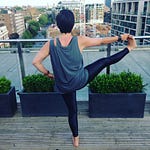
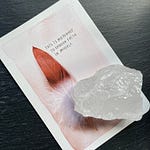
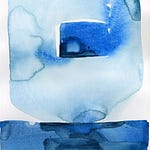
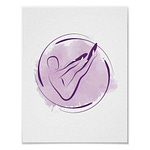
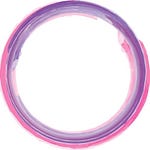
Share this post